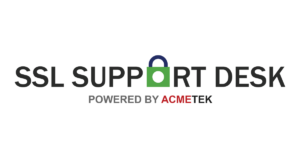The coronavirus outbreak has struck havoc in a variety of industries, particularly in education. Teachers are forced to rely on online teaching methods such as email, video conferencing, and collaboration technologies such as Google Meet and Zoom to ensure their students’ learning due to the protracted shutdown of many schools and college campuses.
As a result, it has never been more critical for the education sector to prioritize CyberSecurity when it comes to protection.

However, because there are so many unprepared and inexperienced educational institutions when it comes to remote work practices, hackers attempting to gain access to their networks in order to steal personal data quickly became targets. To combat this, these institutions should, to the extent possible, adopt best practices in IT security.
Recently, news broke that a hacker has posted an inappropriate video during an online class in Mumbai. The incident is a wake-up call for the education sector, alerting that, like other critical sectors, it will continue to be targeted by various new malicious actors.
According to a recent study of industry CyberSecurity breaches, 59% of UK schools and education reported attacks in the previous year, compared to 46 percent of businesses. In addition, 57% of higher education institutions reported breaches at least once a week, demonstrating the number and consistency of threats faced at all levels of education.
What can be done to ensure safe education online?
Educational institutions must establish a comprehensive CyberSecurity strategy that addresses traditional threats and evolving cybercriminal methods. In addition, educational institutions must ensure that both students and staff are aware of the dangers of working and learning at home.
To safeguard computer networks against attacks and unauthorized access, we should adopt standard risk mitigation procedures such as Securing Websites with SSL Certificates, securing users and their accounts, securing VPNs, and deploying firewalls and Internet gateways.
Educational institutions should need basic CyberSecurity knowledge and impart training to ensure that all personnel and students are aware of proper CyberSecurity practices. This method of reducing cyber risk can also assist in resolving issues caused by a lack of funding or other economic constraints.
Those directly responsible for ensuring IT security should prioritize solutions that safeguard and confirm the security of websites, documents & identity of all network users. Strong authentication and digital identification systems, for example, are used by Identity Access Management to ensure that all staff and students have secure access and interactions.
Looking ahead to 2021, a solid basis for new educational channels
The events of the year 2020 have reignited interest in CyberSecurity. Distance learning is already crucial during the lockdown, and it serves as a solid foundation for new education channels.
To assist training institutes in taking a rigorous approach to specific security systems, tools, and materials used by students and staff, technology partners have expertise in hands-on security monitoring and compliant hosting of sensitive data.
Looking back over the last year, we should be proud of the significant advancements in online education that have occurred. Additionally, as we adapt and implement new technologies to promote effective home learning, it is vital that we continue to educate institutions about CyberSecurity threats so that all children can have a safe and secure cyber future.
For more information on SSL/TLS Certificates, Verified Mark Certificates (VMCs), Public Key Infrastructure Certificates, SSL/TLS Certificate Lifecycle Management, and Matter Certificates email to sslsupport@acmetek.com or visit https://www.acmetek.com/contact-us/




